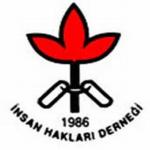The Association called for an end to F-type prisons and for independent boards representing civilian society organisations to be allowed to regularly monitor all detention and prison compounds.
A statement issued by the IHD quoted the Solidarity Association of Prisoners' Families (TAYAD) saying that seven people were currently on a hunger strike to death in Turkey in protest of these prisons and the conditions in them.
Those on hunger strike were identified as "lawyer Behic Ascı at home in Istanbul, prisoner relative Gulcan Goruroglu at home in Adana, Kamil Karatas at the Sincan F Type prison, Sevgi Saymaz at the Usak F-Type prison, Mustafa Tosun at the Tekirdag F-type prison, Serpil Cabadan at the Gebze M Type Prison (Hospitalized on May 30) and Fahri Tırpan at the Kırıklar F type prison."
IHD stressed that the right to life was the most fundamental right of a human being and that the Association regarded hunger strikes or death strikes as a type of action that possibly violated this right.
It said that although the Association itself was against such actions, it was deemed a human duty to care for the wellbeing of hunger strikers, their healths and their demands.
IHD criticised the isolation practices in prisons where it said inmates and convicts were not only prevented from interacting with each other but were restricted in seeing their families, friends, lawyers and doctor. It said many families visiting relatives at F-type prisons complained of harassment and the difficulties they were made to face.
The Association revealed a list of violations committed regularly at Turkey's special F-type prison compounds.
* Detainees and Convicts face restrictions on their communication rights and the right to receive news under the framework of isolation. Some newspapers and publications are arbitrarily banned.
* Isolation conditions and mistreatment are leading to psychological problems in detainees and convicts.
* Difficulties are imposed on the transfer of detainees and convicts to hospitals and decisions not to transfer those in need are being used as a method of punishment.
* Limitations and restrictions are imposed on meetings with lawyers for those remanded in custody during their trial. Attorney-defendant meetings are monitored by prison officials.
* Defendants are not able to examine their case file, notes taken by inmates during meetings with attorneys are being censored by prison staff.
* People on trial on the same case are not able to meet with an attorney related with the case at the same time.
* Many of those under arrest are held in prisons that are outside of the province where their trials are taking place. (KO/TK/II/YE)




